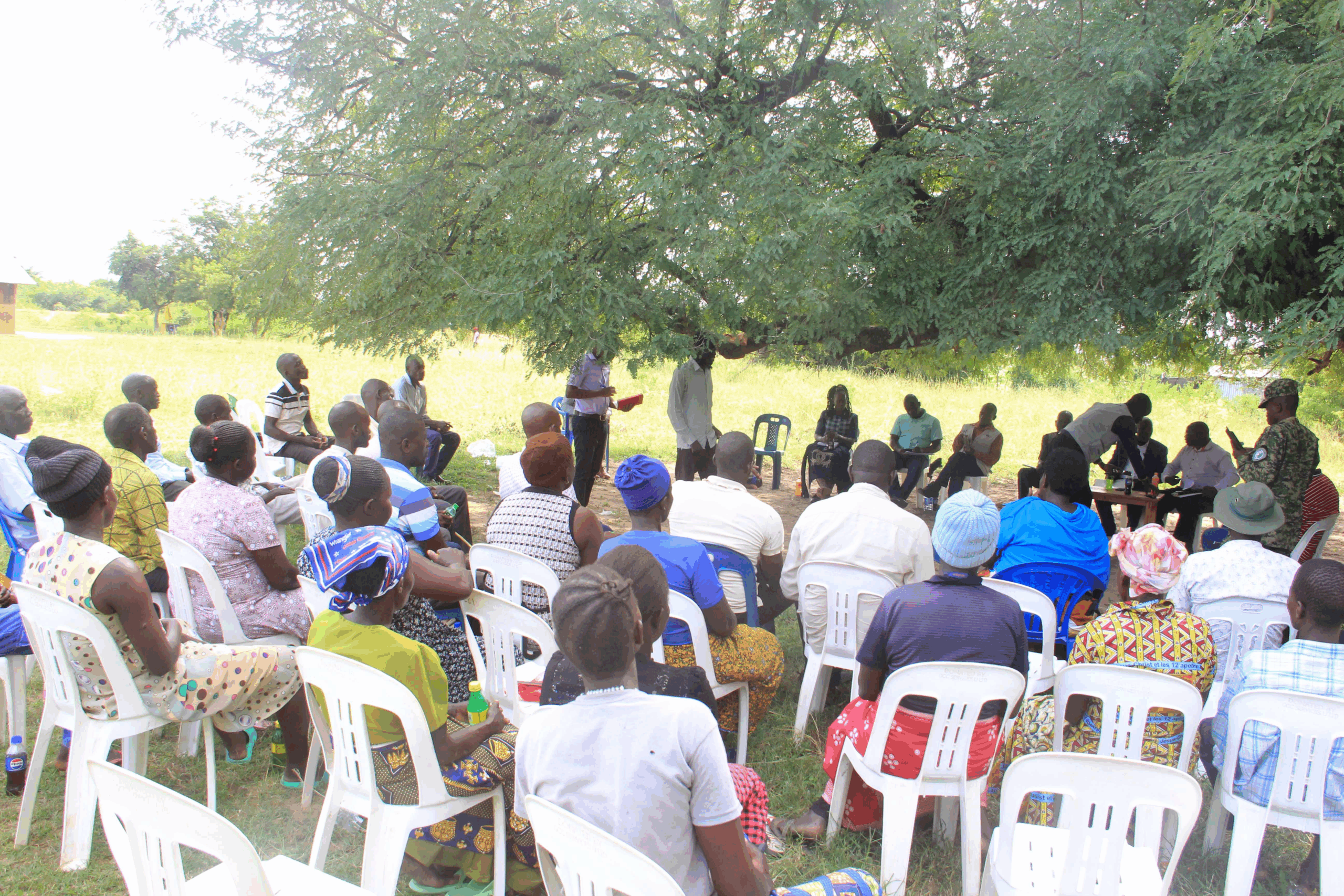BULIISA, October 3, 2025 — Farmers in Ngwedo Sub-county, Buliisa district, are reeling from major losses after stray animals, mainly cattle, have continued to destroy their food crops, sparking rising tensions between herders and local communities.
“We’ve called for help many times, but nothing has been done,” said Regina Nancha, a farmer from Kasinyi village. “These animals are destroying our livelihoods, and now, the situation is escalating into insecurity.”
Crops such as cassava, beans, maize, sweet potatoes, and simsim have been destroyed by cattle roaming freely through the villages, which farmers claim are being poorly managed by herders.
According to Nancha, frustration has led some farmers to retaliate by killing cattle, creating a volatile environment that local leaders warn could spiral out of control if not urgently addressed.
“I lost an entire acre of cassava and beans last season after cows invaded my garden,” said Simon Bihemaiso, another affected farmer. “Some of us try to guard our fields during the day, but the animals come in at night when we’re asleep.”
Leaders say situation is escalating
Kennedy Oringi, Chairperson of Ngwedo Sub-county, admitted that local leaders are struggling to manage the crisis.
“Ngwedo has never been a cattle corridor. It has always been known for food crop production,” Oringi said. “I don’t know who allowed herdsmen into this area, but their presence is wreaking havoc on our people.”
He added that Kasinyi village has become the epicentre of the conflict, with farmers reporting crop destruction but rarely receiving any form of compensation from the cattle owners.
Gilbert Balikurungi, Chairperson of Kasinyi village, confirmed the rising tensions.
“Out of anger, some farmers are now hacking and killing cows. The number of such cases is increasing, and there are fears this could lead to tribal clashes if nothing is done,” he warned.
The grievances were aired during a stakeholder meeting organised on Wednesday by the Hoima Caritas Development Organisation [HOCADEO] in Kasinyi village. The meeting brought together farmers, herders, and local authorities in a bid to find a lasting solution.
Herders defend themselves
In response, some herders pushed back against accusations, claiming that crop farming is being extended into areas traditionally used for grazing.
“This land has long been used for both cattle and crops,” said James Kuribakanya, a herder. “Our animals destroy gardens mostly when we are moving them to Lake Albert for water. Farmers have planted crops right up to the lakebanks.”
Kuribakanya urged farmers to fence off their gardens and called for more understanding between the two groups.
“While farmers are complaining of crop destruction, we herders are also suffering, our animals are being killed,” he added.
Sylvia Kyalisiima, another herder, condemned the violence, noting that herders have also been attacked, with several cases reported to the police.
“If a cow damages crops, report it to the authorities. Killing animals or attacking people is not the solution,” she said. “Our husbands and children have been injured. Leaders need to sensitise the community about the law.”
Authorities intervene
To address the issue, Moses Mugume, the Ngwedo Sub-county Chief, announced that any stray animal will be impounded, and the owner fined Shs 50,000 per cow.
Doreen Babihyemaiso, the Buliisa District Agricultural Officer, urged both farmers and herders to avoid taking the law into their own hands. She explained that damaged crops can be valued and compensated, depending on verification from the district production department.
“There is a proper channel for compensation. Farmers should report to local leaders instead of retaliating,” she said.
Call for co-existence
Sylvester Tumukurate, Deputy Resident District Commissioner of Buliisa, called for peace and mutual respect.
“Killing a cow is equivalent to murder, it’s the same as killing its owner,” he said. “Learn to coexist with one another. Your work should not interfere with your neighbour’s.”
As tensions continue to rise, local authorities and civil society organisations have pledged to intensify dialogue and sensitisation efforts to prevent further violence and protect livelihoods on both sides.
Buy your copy of theCooperator magazine from one of our countrywide vending points or an e-copy on emag.thecooperator.news
